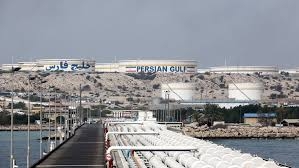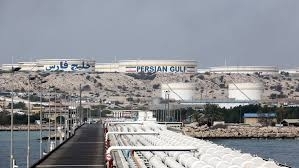Iranian Sanctions: Energy Trouble in the Caucasus
November 5, the world’s oil producers and their customers entered a new period of uncertainty on Monday as further American economic sanctions against Iran came into force. Washington aims to reduce Iran’s oil exports to zero by implementing the aggressive sanctions. Although intended to impact only Iran, it is unlikely that global oil prices will remain stable as Iran is the fifth-largest oil exporter in the world. During the last period of sanctions, 2.4 million barrels of Iranian crude oil per day were lost from the global market.
The Caucasus region has a long-standing history of economic ties with Iran, including in the energy sector. Uncertainty currently hangs in the region, as the impacts of the sanctions on Iran’s neighboring countries, Georgia, Armenia, and Azerbaijan, remains to be seen.
Azerbaijan, a major exporter of crude oil and natural gas, currently collaborates with Iran on projects, such as shared ownership of Caspian oil and gas fields. The country may well benefit from the Iranian sanctions as their oil profits will rise as prices increase. Although Washington granted a waiver for “the development of natural gas and the construction and operation of a pipeline to transport natural gas from Azerbaijan, the shared ownership of projects is still complex.
Azerbaijan also imports small volumes of Iranian gas for local consumption. As Georgia relies heavily on Azerbaijani gas, this could have an impact on Georgians. Indeed, Georgia is expected to important around 2.7 billion cubic meters of gas from Azerbaijan this year alone. In addition, Azerbaijani export commitments are aided by the use of Iran to transit gas from Turkmenistan to mainland Azerbaijan. Iranian sanctions on Iran would make this more difficult.
However, SOCAR spokesman Ibrahim Ahmadov told Eurasia net that an increase in domestic production has halted the gas imports via Iran. “A big part of imported gas was used to fill our gas storage during summer which is then re-exported in winter when there is higher demand” There are currently more than 3 billion cubic meters of gas in storage, with further Russian important due by the end of the year. SOCAR doesn’t foresee any shortages. “There should be no problems with the gas supply in Georgia,” Ahmadov stated.
Georgia’s reliance on Azerbaijan and Iran for its gas supply is not the only potential side-effect of the sanctions on the country. The weakening Iranian economy affects the import and export market, as the two countries regularly trade together.
However, the restrictions could also benefit some industries, for example, shipping. Sanctions have led to an increased turnover of goods in Georgian ports, as they have led to price hikes at Bandar Abbas, the Iranian port. Currently, one of the biggest competitions to Poti, transportation costs of $1,000 - $1,200 per container from Bandar Abbas to Armenia or Azerbaijan, have increased the number of goods flowing through Poti. In fact, it is estimated that the volume of total turnover of goods in Georgian ports could increase by 15 - 20% if the sanctions remain until the end of 2019.
U.S. National Security Adviser John Bolton, recently visited all three Caucasus countries to attempt to garner support for the U.S.-imposed Iranian sanctions. The success of these visits remains inconclusive. The new round of sanctions imposed on November 5 didn’t spare any of the Caucasus states.
Although none of the countries in the Caucasus import Iranian crude oil, they reply on Iran in some way for natural gas. The exact impact this may have on Georgia remains unclear until the scope of the sanctions becomes evident. Georgia must find a way to balance its regional interests and those of the West to achieve the best interests for the country.
By Amy Jones
Image: Market Watch












